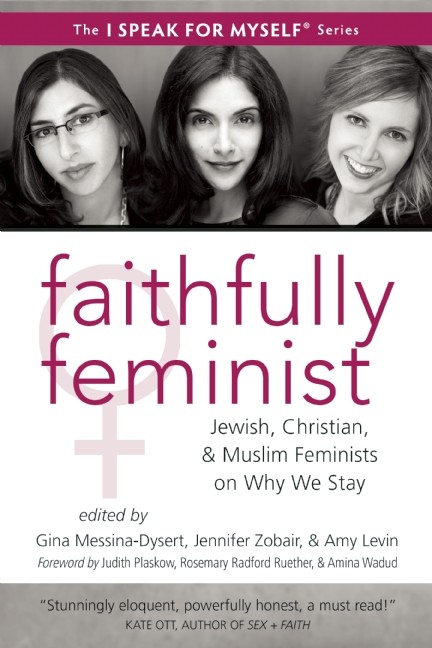Around this time last year, I was parked in the lobby of a hotel in Tobago (the smaller island of the Trinidad & Tobago siblings), iPad in lap, wishing the hotel had WiFi in the rooms and that I had brought a laptop with me. As the rest of my group slept, I corresponded with one of the editors of Faithfully Feminist and attempted to reach a consensus on a few editorial changes to the essay I contributed to the work and to catch any typos in my essay that multiple eyes may have missed. (I know I failed at this; I never noted that the one name I use in the essay is a psuedonym. I blame the tropical air and the mosquitoes for my lapse.)
It’s not the way I would have opted to spend one second of my weekend in Tobago, but a publishing deadline loomed, and I wanted this essay to be as perfect as possible for its future readers. I envisioned they would be grown and younger women like me, women who often are scoffed at in academic and/or feminist circles because they believe in an unseen God who is traditionally thought of as male, and who are misunderstood or silenced in faith circles because they question their belief’s doctrine. They would be women who, at times, feel like they are alone, that there are no other women in the world thinking about the things they think about.
When White Cloud Press releases Faithfully Feminist on August 24, 2015, women like me will know that there are at least 45 other women like them. That’s a good start, but I’m hoping it is, in fact, just a start. All publications have a page limit, and there was much I couldn’t fit into one essay. My early drafts included thoughts about the shunning of religion and faith in academia, the cultural importance of church life to African Americans, and the complicated relationship between racism and freedom in Christianity. If I were to rewrite the essay today, I would address my search for an understanding of the feminine Divine and the ways in which my mindset has changed and my heart has been challenged by physically staying away from church. I would talk about my complicated relationship between my traditional, heteronormative desires regarding marriage and family and my drive for independence. I might say more about how, without knowing what I observed, I saw my mom go against standard church teachings, or about how I see my cousins do the same and still be happy and deep believers today. I might ponder about how, as an intersectional feminist of faith, I could be a better ally to my LGBTQ sisters and brothers in Christ and outside of the church. I might put Christ at the center of the essay and argue that he was an intersectional feminist, too.
So you see, there’s much to discuss within and beyond these 45 essays. Think Faithfully Feminist would make good material for a panel discussion, forum, conference, etc. (IRL or virtual)? I do, too! In fact, let’s just consider this post my invitation to myself to speak or attend any such event. If you would like to send me a formal invitation, please contact me.
And if you’re interested in preordering a copy of Faithfully Feminist, click here.


This sounds really interesting- as a 21st century Christian women I’ve definitely struggled with almost all the topics you mentioned. I’ll be on the lookout for this collection!
Well, Brittany, know that you have not struggled alone! Please get back in contact once you’ve had the chance to read the book. I’d love to know your thoughts on it.